Subscribe by Email
-
Recent Posts
Category Archives: Books
Did You Ever Have … and Wolf Winter

Somehow I missed jumping on the overall bandwagon for Bill Clegg’s popular 2015 novel “Did You Ever Have a Family.” I know everyone raved about it. I know some called it “the best novel of the year.” I know it was longlisted for the Man Booker Prize. I know I should have liked it a whole lot more, but somehow alas it didn’t turn out that way, and I’m still wondering a bit why.
I listened to “Did You Ever Have a Family” as an unabridged audiobook, and at the time, for some reason, I didn’t realize it was the author who was reading it. Usually I love when the author reads their own book for the audio (especially with memoirs — it’s terrific) but sometimes with novels it’s not so great — as was the case this time. Clegg read it in a monotone voice and didn’t differentiate between any of the many characters. I found myself questioning, “Is this guy getting paid for this?” If I were the publisher, I think I would have found someone else, but alas, I adapted to his reading style.
It doesn’t spoil anything to say “Did You Ever Have a Family” is about a horrific tragedy that takes place in a small Connecticut town after four members of a wedding party, including the bride and groom, are killed in a fire the night before the wedding. That starts the book, and the rest of it delves into who these four people were, and how the tragedy affects their relatives’ and friends’ lives in the community after the terrible event.
Quite a lot of people inhabit the novel, including 10 who narrate the story in alternating chapters. The main characters are the bride’s mother, June, and the groom’s mother, Lydia — whose lives are shattered — but other narrators include the wedding caterer who never got paid, the teenage pothead who lives nearby, and the motel owners on the West Coast who assist June when she eventually settles there to get away. These characters are just the tip of the iceberg.
I liked parts of “Did You Ever Have a Family” — some of the details and descriptions stuck out, and the conversational tone was enticing. I also liked how one comes to learn much more about the characters’ histories than what happens at the beginning of the book.
But unfortunately I felt disconnected or distanced from quite a few of the characters. The many alternating narrators, some of whom are very peripheral to the story, seem to take away from the book’s focus. Unlike the novel “Station Eleven,” which also had a big cast of characters but which is great, this novel became lost and fell flat to me despite all of its characters’ tragedies.
And indeed there is a lot of tragedy and grief in “Did You Ever Have a Family.” Not only is there the main fire disaster, but there’s also cancer, rape, abuse, drug overdoses, and other mayhem among the peripheral stories. All of it felt pretty macabre to me. And although some of the characters find a bit of solace at the end, I was relieved when the novel was finally over.

In the meanwhile I finished off Cecilia Ekbäck’s 2015 literary murder-mystery “Wolf Winter.” Ekback is a Swedish-born author who now lives in my town and I met awhile back on Independent Bookstore day. I had wanted to read her debut novel before she and others appear at our annual book festival next week. So I dove into it and slowly made my way through its 405 pages.
“Wolf Winter” is a highly atmospheric novel that takes place in Swedish Lapland in 1717. It’s about a Finnish family who moves to a northern Sweden mountainside called Blackåsen, where only a handful of settler families live, occasionally mixing with the Laplanders. There the family comes across a dead body high up on the mountain, which some dismiss was killed by an animal, but the Finnish mother believes differently. She starts poking around asking questions, and as a brutal winter comes on, she begins to learn some disturbing truths about the area and the other settlers.
“Wolf Winter” conjures a vivid spooky and wintry atmosphere in a land where the King and Church rule supreme. The main characters are the Finnish mother, and her eldest daughter who feels a power from the mountain, as well as the area’s priest who must investigate the case and keep the settlers in line.
I really liked the book’s imagery and characters — the only trouble is I felt there could have been a bit more action among its many pages. A lot of the drama comes at the very end, but I wish more surrounding the culprits, their motives, or other happenstances would have been spread out across the story. As it was, the action seemed a bit hung up and I thought the novel could’ve been edited down shorter and tighter.
On its cover, I see that “Wolf Winter” has been compared to Hannah Kent’s novel “Burial Rites,” though I still need to read that one to see if there’s any truth to that. It might make for an interesting comparison.
What about you — have you read “Did You Ever Have a Family” or “Wolf Winter” and if so, what did you think? Continue reading
Posted in Books
22 Comments
Watchman and Station Eleven

Last Sunday I turned 50, that’s right the dreaded 5-0, and to ease me over this middle-age hurdle my husband and I spent a getaway weekend in Aspen, Colorado, which is fabulous this time of year. It made it a very special occasion especially since I once lived there for a few years right after college. Back then, I skied and worked at the wonderful indie “Explore Booksellers” on Main Street, which thankfully still exists. It was a good life, and I’m not exactly sure now why I left. On this trip, we rented bikes and rode into the mountains to see the fall colors. It was gorgeous. See the Maroon Bells photo above.

While on the flights, I made my way through Harper Lee’s much-ballyooed novel “Go Set a Watchman.” If for some reason you were under a rock and didn’t hear, it’s about what happens when 26-year-old Jean Louise (Scout) returns home to Maycomb, Alabama from New York to visit her aging father, Atticus Finch. During her homecoming, set amid the tensions of the civil rights era, she learns some disturbing truths about her family, the town, and those closest to her.
Of course I was really hoping to like this one because of Lee’s classic “To Kill a Mockingbird,” which I had just reread this year, but alas it wasn’t to be. I should have known when Salman Rushdie mentioned just last weekend in the New York Times that he didn’t finish “Go Set a Watchman,” that it wasn’t a good sign. It’s not a hard book to read but I struggled with seeing it till the end too. It took me over a hundred pages to get into the novel, then I found the middle more interesting, but then the ending seemed to turn into a monologue argument that just felt no longer like a narrative.
There were parts I liked but on the whole I just didn’t care for “Go Set a Watchman.” And it wasn’t because of how Atticus had changed in this book, or its theme of Scout’s homecoming and her revulsion towards the racism she finds there. Those are interesting themes, but it just felt like an early draft. The narrative failed to grab me time and again and I struggled to get through it. I can see why Harper Lee never thought to publish this before because it wasn’t a final version.
What the book left me feeling was: what a great editor Lee must have had — not only to suggest the story instead be told from Scout’s childhood point-of-view — but also that her editor and Lee had apparently vetted and revised the manuscript so thoroughly together over years that it became “To Kill a Mockingbird.” Whether “Watchman” is valuable as a “literary artifact,” I’m still wondering about. I guess it is, but it doesn’t necessarily make me want to read through the trash bins of other writers for first drafts, despite how much I might want to hear a character — such as Scout’s — voice again.
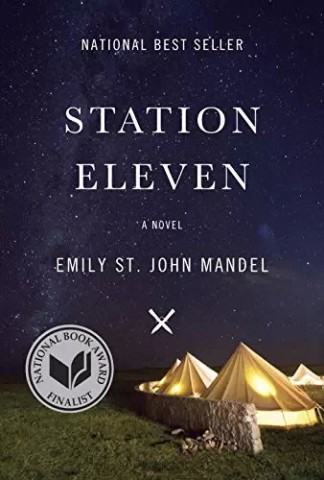
I was disappointed by it, but luckily Emily St. John Mandel’s 2014 novel “Station Eleven” came to the rescue. I know most bloggers raved about this novel last year, but I’ve finally just gotten to it. I listened to it last week as an audiobook read by actress Kirsten Potter who did a wonderful job. Holy smokes, what an entertaining book! I plan to read it in print as well though my husband just snagged my paperback copy of it.
Although it’s a post-apocalyptic novel, “Station Eleven” is not your typical gory tale about the immediate aftermath of a horrific event. It focuses mostly 20 years after a flu pandemic has wiped out most of the world’s population and is about the new culture that emerges among survivors and their settlements. It’s still scary and suspenseful, though at times it’s funny and endearing too.
What makes the story so great is the wide array of characters in it that are brought to vivd life, which includes a famous actor, a traveling symphony, a comic book writer, a corporate consultant, and a paparazzo. These people’s lives end up connecting or reconnecting in interesting ways as they travel about. I loved how the story circled around and all came together. You have to pay attention though because the novel jumps around in time quite a bit and from one characters’ story to the next, but despite the jumpiness, “Station Eleven” seemed pretty easy to follow and quite manageable.
I won’t soon forget the characters of Arthur Leander and Miranda and Jeevan too. They were my favorites. I loved as well how “Station Eleven” is set both in Canada and the Midwest. My husband and I have been to Toronto, and Denman Island on the West Coast, which is fictionalized in the book as Delano Island, which is Arthur’s hometown.
Apparently as the author has said in interviews, “Station Eleven” was meant as a “love letter to the modern world” and all the wonderful things we take for granted from it on a daily basis, which the survivors in the book don’t have. She’s talking about electricity, heat, plane travel, and the Internet among other things. It’s wonderful too how creative the novel is and how it focuses on the arts as an integral part of the world to save and keep going. As “Station Eleven” makes clear “Survival is insufficient.”
What about you — what are your thoughts on Harper Lee’s “Go Set a Watchman,” or Emily St. John Mandel’s “Station Eleven”? Continue reading
Posted in Books
32 Comments
Stoner and Oliver Sacks
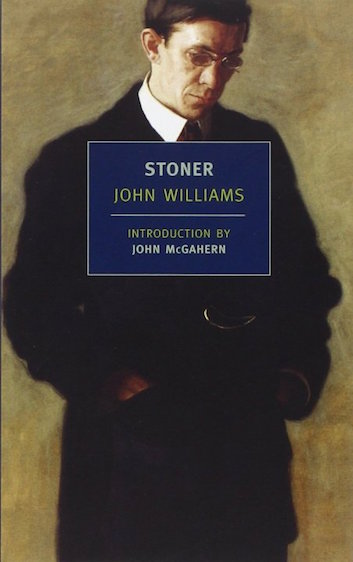
Although John Williams’s novel “Stoner” was first published in 1965, it seems to be having a resurgence these days in North America, and apparently became a bestseller in Europe in 2013. Go figure. It happened by word-of-mouth or what have you. New readers like me took to it through recommendations or book clubs and are passing along the word. I’ve seen “Stoner” talked about on various blogs and read it last week for my book club, which plans to discuss it later this month.
It’s still a bit mystifying how this quiet, grim novel grabbed the limelight, but I got caught up in the book, too, which is not hard to follow. It’s about a farm boy in the early 20th century, named William Stoner, whose dirt-poor parents send him to the University of Missouri to study agriculture, but he winds up being captivated by English literature instead. He takes to scholarly life and becomes a professor at the university, starting his career just before World War I.
The novel follows Stoner’s years there through retirement, capturing his joy of teaching but also the various disappointments he encounters along the way from his cold marriage and family life to circumstances that embroil him within the English department. He doesn’t seem to be able to catch a break. Even a love affair that makes him happy has its consequences.
It’s a bit bleak, the story, you feel for Stoner who is a shy, dedicated soul who doesn’t deserve the obstacles he faces. Yet what makes the novel so gratifying are the passages and truths about love and life that the author conveys. He cuts to the heart of it, without fanfare or sentiment. I wanted to mark and underline certain paragraphs but alas I had a library copy and couldn’t. I will have to get my own.
Another gratifying part is Stoner’s love of literature — his awakening to it, which brings him an awareness of his self. I adored this theme, what fan of reading wouldn’t? Literature is the one thing in the end that doesn’t seem to betray him. The novel reminded me slightly of Chaim Potok’s novel “The Chosen” because of Stoner’s intellectual awakening and scholarlyness through out, but it’s also mixed a bit with the grimness of perhaps a Richard Yates’ novel, one like “Revolutionary Road.” The novel “Stoner” is definitely a quiet, but affecting read, and one I will likely take up again in the years ahead. I only wish they hadn’t titled it “Stoner” because in my opinion it doesn’t really do the book justice.
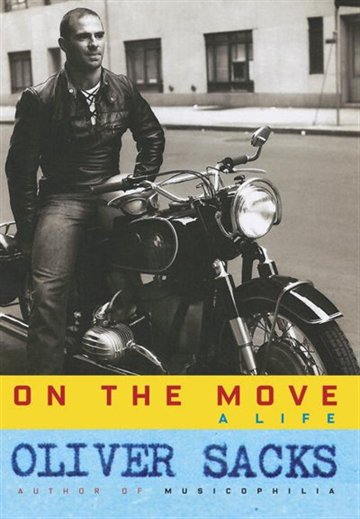
I also finished this week Oliver Sacks’s autobiography “On the Move: A Life.” I listened to it as an audiobook as I walked my dog. As you might know, Sacks passed away last month at the age of 82. He was a well-known neurologist who worked with patients with various disorders and illnesses, which he wrote about in such books as “Awakenings” (1973) and “The Man Who Mistook His Wife for a Hat” (1985) among others.
I hadn’t read those, but I picked up “On the Move” because I thought his life would be quite full and fascinating to hear about, and indeed it was. In it, Sacks traces the experiences and adventures from his childhood in Britain in the 1940s and ’50s with his parents who were both doctors and his schizophrenic brother — to his medical residency and fellowships in California in the early ’60s where he took long motorcycle excursions and was a weightlifter on Muscle Beach in Venice — to his work and case studies thereafter at hospitals in New York City.
On top of that he relates his passion for open-water swimming, writing, traveling, and those close to him. He reveals his life as a gay man and apparently he went through a period of celibacy that lasted 35 years. It’s interesting to hear too of his friendships with the poet W.H. Auden, and scientists Francis Crick, and Stephen Jay Gould among others, as well as his time hanging out with Robert De Niro and Robin Williams from the movie inspired by his book “Awakenings.”
“On the Move” includes a lot about the neurological cases Sacks treated including patients with encephalitis lethargica, deafness, color blindness, autism, Parkinson’s, and Tourette syndrome. I learned a bit about these from the book and got a sense of how Sacks sympathized and bonded with his patients. He seemed to give them a voice and the care they so desperately needed long before many institutions did.
As much as he was a doctor, Sacks was also a writer and storyteller, filling hundreds of notebooks with writings, and publishing more than a dozen books. He seemed to have a voracious love of learning and was always involved in new things, which is evident in “On the Move.” All of this makes for a sprawling but vibrant and revealing account of his notable life journey. My only wish was that Oliver Sacks had read it himself for the audiobook instead of American actor Dan Woren, but nonetheless it still made for an entertaining and illuminating listen.
What about you — have you read John Williams’s novel “Stoner” or any of the books by Oliver Sacks — and if so, what did you think? Continue reading
Posted in Books
21 Comments
Between You & Me
Last week the smoke coming from wildfires in Washington state, Idaho, Montana, and British Columbia was brutal here. The sky was perpetually gray and you couldn’t go outside long without your eyes and lungs burning. I can only imagine how bad it was in the places where the fire actually was. Now finally the blue sky has returned and I’m no longer taking oxygen or the sky’s color for granted. I just hope rain will come soon to the areas still ignited in flames. This has been a particularly harsh summer for wildfires out West, and it’s made me look forward for once to cooler fall temps.
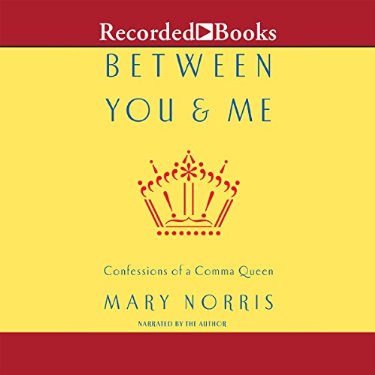
Meanwhile, my last book for August was Mary Norris’s 2015 memoir and grammar usage book “Between You and Me: Confessions of a Comma Queen.” I listened to it as an audiobook narrated by the author, which was great as I felt like I got a better sense of what Mary Norris is like. She’s definitely a hoot and seems eccentric in her grammarian ways and interests.
If you haven’t heard of this book or her, Mary Norris has been a copy editor and proofreader at The New Yorker magazine since 1978. She’s still there, holding fort over all the minutiae — particularly the style and grammar that goes into the mag. Her book reveals some anecdotes of her days at the magazine, but mainly it delves into usage issues, such as spelling, punctuation, that vs. which, pronouns and antecedents, and dangling modifiers, among other things. One needs to be quite taken with the particulars of punctuation and grammar to keep interested in this book because at times Norris can go on and on about a single example or topic, seemingly not knowing exactly when to stop.
I didn’t mind though because I worked for many years at a newspaper as a copyeditor myself so I used to deal with these things on a nightly basis. It gets ingrained in your bones — all the tiny details, where you have to catch everything and eliminate all the errors and put words into the style of the publication’s. It can be tough and hair-raising on deadline. Afterwards, you often wake up in the middle of the night worrying whether you made a “fix,” or if you think something slipped through. I remember those caffeinated late nights and some that gave me ulcers or at least felt like it.
But the best parts of “Between You and Me” aren’t really all the grammar schooling that’s in it, but more the anecdotes Norris shares of various writers and their particular style traits. She touches on the poet Emily Dickinson and her use of dashes, the life of lexicographer Noah Webster, and the writing of Herman Melville, particularly the mystery over who put the hyphen in the title of “Moby-Dick.” She mentions her dealings over the copy of writers Philip Roth, George Saunders, James Salter, and Pauline Kael among others. These are the parts I really enjoyed. I also liked the bits about her personal life and her work life of what it’s been like at The New Yorker. I would have liked more of this memoir-type stuff and less about usage rules.
In particular two chapters towards the end of “Between You and Me” could have been subbed out in my opinion for other material. In one, Norris includes a whole chapter on the usage of profanity in copy that is laced with … well, a lot of profanity that turns out not to be that enlightening. In the other, Norris writes about her fettish for pencils and pencil sharpeners, which I guess I found a bit amusing and charming. But then she really gets into the details of both. I’m not kidding, I haven’t heard or thought so much about pencils since grade school, and likely not back then either, LOL. Wow that’s when I thought “Whoa she’s pretty eccentric” … but not exactly in a bad way.
Still I was quite entertained by listening to Norris read “Between Me and You.” I laughed quite often and agreed with her on much of her wisdom and insight. She comes off as pretty down-to-earth, modest, salty, funny, and not snooty like one might think of a longtime reference guru. I think that’s what really won me over. She includes errors she’s made and doesn’t sound like a bossy know-it-all. (As long as you don’t write or say “between you and I,” she probably won’t go too batty.) For that, “Between Me and You” is a refreshing read among the recent spate of style and usage books that at times come across too heavy-handed in their righteousness or correctness.
What about you — have you read or heard of Mary Norris’s book — and if so what did you think of it? Or have you liked any other books on style and usage? Continue reading
Posted in Books
10 Comments
Girl in Glass / Review & Giveaway
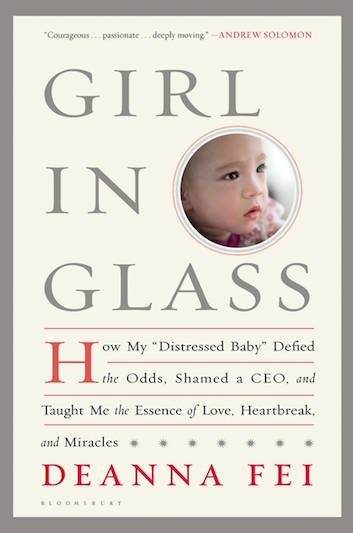
I’m not a mother, nor have I read many childbirth books, but I snapped up a review copy of Deanna Fei’s 2015 memoir “Girl in Glass: How My ‘Distressed Baby’ Defied the Odds, Shamed a CEO, and Taught Me the Essence of Love, Heartbreak, and Miracles” because I was curious about what the author and her family had endured and had to say. I wasn’t aware beforehand that she and her baby had been in the news in 2014 after AOL’s CEO had signaled out her baby’s healthcare costs, along with another’s, as a reason why he was cutting the company’s employee benefits. (More on this in a bit.)
Instead I picked up the book blind, whipping through the first half of the memoir, which is a nail-bitting account of how the pregnant author woke up one morning to find herself in labor at 25 weeks — over three months ahead of her due date. It hadn’t been a high-risk pregnancy; she had given birth to a healthy boy just a year earlier, and the new baby, a girl, was on schedule and healthy, according to her doctors. But for unknown reasons, the baby girl came very prematurely, weighing just 1 lb, 9 oz after being delivered by an emergency caesarean section. As a result, she was kept in intensive care for months and underwent various health complications.
“Girl in Glass” navigates the parents’ journey, specifically the mom’s, through these incredibly difficult and uncertain times. It’s very open and personal about her fears, her marriage, and the guilt over why the premature birth happened and her thoughts of whether the baby should be “let go.” She describes her and her husband’s harried lives commuting back and forth from their Brooklyn home caring for their lively boy, back to the Manhattan hospital where their daughter lay in a glass isolette hooked up to a contraption of wires. There’s times the author seems to be on the verge of a breakdown, unable to sleep and endlessly pumping milk to try and feed her tiny daughter. You can only hope beyond hope for the baby’s survival and improvement.
Towards the end of “Girl in Glass,” the author delves into a 2012 incident at a town hall meeting in which her husband’s then-employer, the CEO of AOL, blamed the healthcare costs of covering two “distressed babies” for the reason the company was cutting employee retirement benefits. Many surmised he was talking about their daughter, which he was. The whole thing, which seems terribly offensive and illegal — that of a CEO meddling in employees’ health expenditures and disclosing others’ medical information under the label of “distressed babies” — caused a national uproar and led the author to rebut him in an essay on Slate, ultimately earning the CEO’s apology.
At the end, “Girl in Glass” raises a lot of pertinent issues surrounding both premature babies and medical privacy infractions, which I found quite illuminating and relevant considering both are on the rise. Author Deanna Fei also lays out the history of neonatal care and today’s guidelines on which preemies are usually saved; at her daughter’s birth at 25 weeks, only half of the babies are said to survive, and many of those are disabled. Fei’s story packs a wallop for her candor during her daughter’s struggles, and is informative about issues that many of us never imagine, or plan on, could happen to our families.
What about you — have you heard of “Girl in Glass” or this author’s circumstances — and if so, what do you think? Or do you know of similar circumstances?
Thanks to Tandem Literary and Bloomsbury for providing me with a copy of “Girl in Glass” to review.
For those interested in the book, I have one copy to giveaway, just leave your interest in the comments and I will randomly draw a winner. Continue reading
Posted in Books
12 Comments
My Sunshine Away
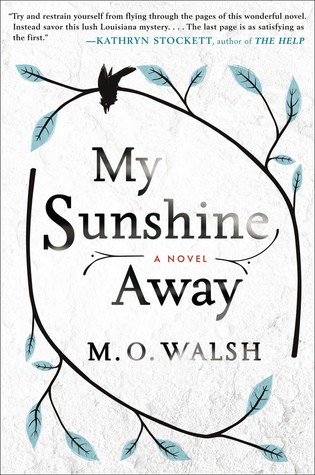
A hardback library copy of M.O. Walsh’s 2015 debut novel “My Sunshine Away” accompanied me on vacation as my husband and I traveled over hill and dale recently through parts of Vermont, New Hampshire, and Quebec. We were attending a family reunion for a few days and then took a bicycle trip, and luckily the book did not get rain damaged in my bike pannier, though a paperback copy probably would have been easier to lug.
I’ve been surprised to see some readers refer to “My Sunshine Away” as a crime or mystery novel. Although a crime does take place in it that is eventually solved, to me it’s much more a coming-of-age tale set in the South. And I for one, find it hard to resist really good coming-of-age stories — whether it’s “To Kill a Mockingbird” or “The Catcher in the Rye” or Michael Chabon’s “The Mysteries of Pittsburgh,” or this one, I feel the need to consume it rather completely.
For those who haven’t heard, “My Sunshine Away” is about an adolescent boy growing up in Baton Rouge, Louisiana, whose life changes when a girl that he has always had a crush on is raped in his quiet suburban neighborhood in the summer of 1989. He’s so obsessed with the girl, Lindy, that he ends up becoming a suspect in her assault. Yet later he and Lindy bond after his family suffers a tragedy. What happens to their relationship collides at the end with an attempt to solve her rape case.
Judging by comments on Goodreads, people had a pretty diverse reaction to this novel, most really liking it, while others did not. I think some readers had problems of being stuck inside the mind of an adolescent boy who’s totally obsessed with the girl next door. His infatuation perhaps gets too much or endless for some. But I think the kid, a young sort of lost teen, is trying to find himself — a bit like Holden Caulfield in “The Catcher in the Rye” — and find his way in that specific corner of the world in Baton Rouge. He’s going through tough stuff: his parents become divorced, his family suffers a tragedy, he’s desperate for a girl. He narrates as he learns looking back at these years, what it meant, and how the crime of her rape affected him and the whole neighborhood.
I found the story quite immersive and moving, and amusing in places despite it’s dark subject matter. I thought a lot of the writing was wonderful, and two chapters in particular stuck out for me. In one he describes what happens at school the day the Space Shuttle Challenger blew up in 1986, which is quite a scene. In the other he tells how Baton Rouge differs from New Orleans, and what happens later in life in the aftermath of Hurricane Katrina. The novel’s sense of place and time, specifically for the South in the 1980s, is terrific throughout.
I would highly recommend “My Sunshine Away” for readers who especially like coming-of-age tales, or stories set in the South. Enjoy this quirky heartfelt gem.
Posted in Books
22 Comments
Beryl Markham and Circling the Sun
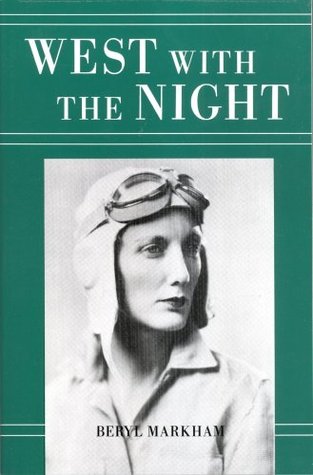
I first came across Beryl Markham’s memoir “West With the Night” in the late 1980s when I was working at an independent bookstore in Colorado. The 1942 book apparently had been collecting dust in an attic when it was re-discovered and re-published to much acclaim in 1983. It became an international bestseller and that’s when I first got my hooks into it.
Many know by now that Beryl Markham was raised in Colonial Kenya in the 1920s. She was an independent woman before her time, becoming a racehorse trainer, a bush pilot, and the first female aviator to fly solo across the Atlantic from east to west in 1936. She then became an author, of “West With Night” and also wrote other stories that were posthumously published in “The Splendid Outcast.” She was married three times and apparently had various lovers and affairs during her life, including some say to Prince Henry, Duke of Gloucester.
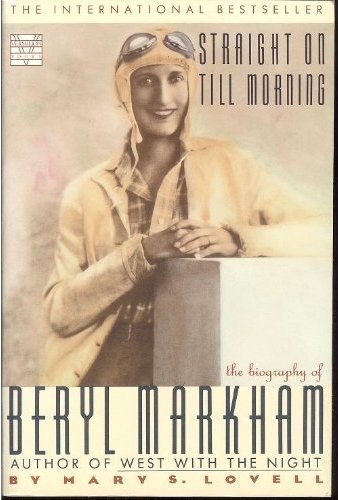
But Markham’s memoir “West With the Night” doesn’t really include any of her juicy personal life; it’s mostly about her adventures in Africa, her love of animals, and her flights as a pilot. Still it’s a terrific read and made quite an impression on me. Right after I read it, I got a copy of Mary S. Lovell’s biography of Markham called “Straight On Till Morning,” which came out in 1987 and is a definitive source on her life. Lovell was able to interview Beryl and her relatives quite extensively before Beryl passed away in 1986, which makes it quite a read. If you’re at all interested in this remarkable adventurer, you should check out this very interesting biography.
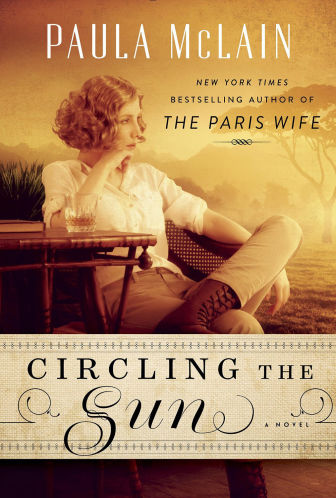
Which brings me to the latest book on Beryl’s life: Paula McLain’s novel “Circling the Sun.” At the start I was a bit wary of it since a novelization of a famous person can be a bit dicey, don’t you think? I’ve always been a bit leery of authors who make up words and thoughts for iconic figures. What if they misrepresent them? Who are they to say? But I ended up really liking “Circling the Sun” and thought it had the right tone of Beryl Markham. It sounded like her from her own books. I found “Circling the Sun” to be an addicting read, and I wanted it to keep going, telling her life story well after the book ends in the 1930s. Markham didn’t die until the 1980s so there was much more to be told.
But McLain focuses on Beryl’s early years, what made her like she was, from a kid into her thirties. She delves into her personal life, how she grew up without a mother, and how she became linked with the men she would marry and others she would love. Particularly Denys Finch Hatton! The same man that Karen Blixen (i.e. Isak Dinesen) lived with and loved. The book explores their love triangle and the tragedy that ended it for good. Though surprisingly, “Circling the Sun” doesn’t delve hardly at all on Beryl’s piloting days, only at the very end. I thought more time could have been spent on her days as a bush pilot, which are quite amazing in “West With the Night.”
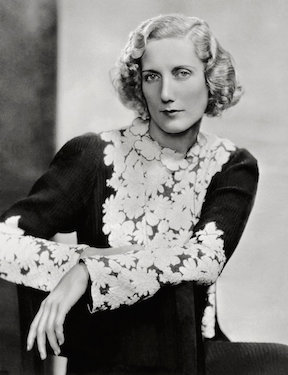
But on the whole, I found McLain’s book included many beautiful passages and writing. It was evocative of the time, and poignant in places; she told Beryl’s story well. But I guess not everyone’s been so keen on “Circling the Sun.” First off, biographer Mary Lovell wasn’t too pleased that McLain used the material or information that Lovell had researched for her biography and turned it into a novel without initially giving her her due. But McLain has since put Lovell in her book’s acknowledgements apparently.
Secondly in a New York Times review of “Circling the Sun,” Alexandra Fuller called McLain’s writing “insipid,” “sentimental,” and “exasperating,” which I didn’t find it to be. Fuller’s angry, too, at the “settlers who used Kenya as their hapless playground at catastrophic expense to those who called Kenya home long before the whites arrived.”
But to Beryl, Africa and Africans seemed the world to her. She was close to them; she trained with tribesmen in her youth. It didn’t appear to be a playground, it was her home for the majority of her life until her death in 1986. I stick by my impressions of “Circling the Sun” and think others — who are interested in Africa or this time period, or this remarkable woman — would like it as well.
Thank you to the publisher who supplied me with a copy to review via NetGalley of Paula McLain’s “Circling the Sun.”
What about you — have you read Paula McLain’s new novel, or any of the books about Beryl Markham — and if so, what did you think?
Posted in Books
20 Comments
My Salinger Year and August Preview
It’s already August, which leaves me with a slight panic that fall is imminent when all I really want is summer to last … and last and last. Such is life living in a northern country. This week I finished the nonfiction audiobook “My Salinger Year” by Joanna Rakoff and I’m half way through the novel “Circling the Sun” by Paula McLain. I also saw the movie comedy “Trainwreck” with Amy Schumer (it’s raunchy-crazy if you like that) and rented the sci-fi thriller “Ex-Machina” (don’t miss Oscar Isaac as a bad bald guy in this).
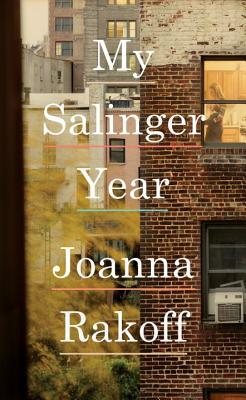
I was turned on to Joanna Rakoff’s “My Salinger Year” by Sarah over at the blog Sarah’s Book Shelves who had highly praised it last year as one of her favorites. Indeed it is an amusing and poignant coming-of-age memoir about a 24-year-old, who after completing graduate school, lands a job in 1996 as an assistant at a heralded literary agency in New York.
When I told my husband I was listening to the audiobook of “My Salinger Year,” he commented that he disliked authors that used famous people to write book exposes about, as if it were like the chauffeur of Marlon Brando divulging his secrets. I told him it wasn’t really like that. Sure J.D. Salinger figures in the book (and a few tidbits about him are learned), but it’s more a memoir about a girl’s start in life, getting her first office job and what transpires during that meaningful year in her life.
It’s wonderful too that author Joanna Rakoff reads the book for the audio. Perfect really. I listened to it twice while walking our dog this week as it’s light and not very long. It made me laugh at points, and reminded me of some of my first office jobs in my early twenties. Part of the memoir goes into Rakoff’s job at the literary agency and what her tasks are like, her dealings with her boss and the other agents; while the other part of the memoir deals with her personal life, her then-socialist boyfriend Don, her family, friends, place in Brooklyn, and aspirations. It’s all melded together in quite an engaging way.
As for J.D. Salinger whom the agency represents, Rakoff does meet him and talks with him over the phone. She becomes a fan of his works after reading them during her year there, and learns that “The Catcher in the Rye” was once rejected by a publisher before being snatched up by Little Brown and published in 1951. Can you imagine the publisher that passed over “The Catcher in the Rye”? Holy smokes it only missed like a billion in sales and credibility.
I think if you’re interested in the publishing industry, or in Salinger’s works, or just in a light, amusing coming-of-age memoir of an aspiring writer — you’d like “My Salinger Year.” The audio was refreshing on my summer walks, and made me want to revisit Salinger’s books in the future. Rakoff has a gifted touch and is a writer to watch.

As for books coming out in August, there’s quite a load and I’m still grappling with which ones I’m most interested in. Veteran authors Shirley Jackson (posthumously), Haruki Murakami (two novels reissued), and short-story master Ann Beattie all have new books due out. But perhaps I’m most curious about Pulitzer Prize-winning author Adam Johnson’s second book “Fortune Smiles,” which is a collection of six short stories that Publishers Weekly calls “hefty and memorable.” Something tells me that whenever or whatever Johnson writes, I need to read it fairly pronto.
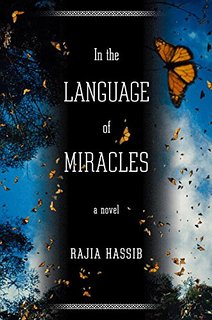
I’m also hoping to check out Rajia Hassib’s highly praised debut novel “In the Language of Miracles” about an “Egyptian-American family and the wrenching tragedy that tears their lives apart.” It’s been hailed by author Laila Halaby as “a gripping, hold-your-breath exposé about being Muslim in post-9/11 America where the heinous act of one can demonize all.” But, she says, “it’s also a universal, multi-generational, immigrant tale.” Judging from the positive reviews of it on Goodreads — which call it powerful and moving — I’d definitely like to snag a copy.
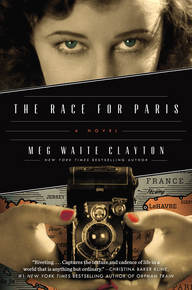
I also like the look of Meg Waite Clayton’s WWII novel “A Race for Paris” about “two American journalists and an Englishman, who together race the Allies to Occupied Paris for the scoop of their lives.” I’m not sure I can resist this historical novel based on real frontline stories of female reporters during WWII. I worked at a newspaper after all and still need to read the biography of war correspondent Martha Gellhorn, which my dad gave me years ago. It’s high on my shelf and would be a good companion most likely to reading “A Race for Paris.”

Lastly in books, if I need one more summer beach or plane read, which I likely do, I might turn to Lucy Clarke’s novel “The Blue” about “a group of friends whose journey around the world on a yacht turns from a trip to paradise into a chilling nightmare when one of them disappears at sea.” It’s said to be a real page-turner and would likely do well preoccupying me when I fly to the other coast for summer vacation in a week. I have not read any of Lucy Clarke’s thrillers, but it appears her books have quite a large following.
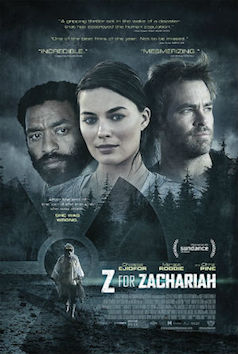
As for movies coming out in August, it appears a few well-known actresses have light comedy-dramas due out: Meryl Streep is in “Ricki and the Flash,” Lily Tomlin is in “Grandma,” and Patricia Clarkson is in “Learning to Drive.” All of these movies look half-way decent though I’m not sure what to think of the preview of Streep as an aging rock musician who returns home looking to make things right with her family. Hmm. Writer Diablo Cody got it right in “Juno” but will “Ricki and the Flash” be half as good? Perhaps I’m a bit more curious about the sci-fi drama “Z for Zachariah” at the end of August, which is about three nuclear war survivors that wind up in a love triangle. Come on, it’s got Chris Pine, Chiwetel Ejiofor, and Margot Robbie. Everyone else on Earth is gone. Somehow I knew Chris Pine would make it after the apocalypse. 🙂

In albums due out in August, there’s new ones by Iris Dement, Grace Potter, Rob Thomas, and Wilco among others. But I think I’d like to check out the latest album from Seattle indie folk singer-songwriter Noah Gundersen called “Carry the Ghost.” I don’t know Gundersen’s music yet, but I like the sound of the album’s pre-released single “Slow Dancer,” so I plan to listen to more once it’s available.
How about you — have you read Joanna Rakoff’s book “My Salinger Year,” or seen Amy Schumer’s movie “Trainwreck” — and if so what did you think? Or which books, movies, or albums out this month are you most looking forward to?
Posted in Books, Top Picks
22 Comments
Dabbling and Boundless
I’ve always been a monogamous reader. I read one book at a time while giving it all my attention. I know it sounds pretty boring, right? But I thought it helped with my focus and speed of the book at hand. However just this week while I was slowed in the middle of a nonfiction book, I picked up both a novel and an audiobook. And voila, I became a multi-book reader. Not only was I breezing through a couple newspapers a day, but I was also dabbling in three books at once. Ohh it was nice! How did I not do this before?! My focus seemed undeterred, and even felt heightened, and my speed had me moving through three books at a good pace instead of languishing in one. I was able to finish the nonfiction that had dropped off for me, which was a relief. I plan to continue on with reading one nonfiction book, one novel, and listening to one audiobook at a time. I think it might be the right mix to keep things moving. How about you — are you a monogamous or polygamous reader? And how has it worked for you?
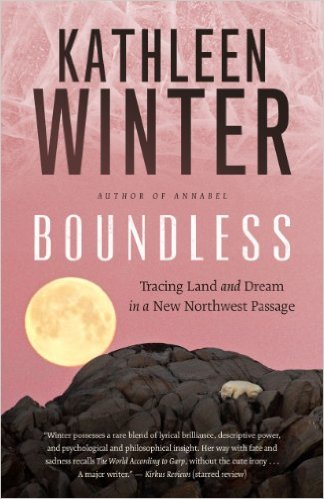
This week I finished Kathleen Winter’s 2014 nonfiction book “Boundless: Tracing Land and Dream in a New Northwest Passage.” I had liked Winter’s last book, a 2010 novel called “Annabel,” about an intersex child that is raised in a remote coastal town in Labrador, which was shortlisted for the Giller Prize. She’s an English-Canadian author who signed a copy of “Boundless” for me at our city’s book festival last fall.
The book is about a two-week summer journey Kathleen Winter took in 2010 through the storied Northwest Passage. She went aboard a ship with many others including marine scientists, historians, archaeologists, and anthropologists. With them, she visits Greenland, Baffin Island, and all along the passage, noting what it’s like in the far North and the changes going on there. It’s a travelogue of what she sees and what she learns from other passengers, a couple of whom she bonds with have Inuit backgrounds. Her book also delves a bit into her personal life and journey: emigrating from England to Canada as a child, becoming a widow with a child from her first marriage, and having another daughter in her second marriage.
“Boundless” had all the ingredients I thought I would love: part travelogue of an intriguing place, and part memoir of a successful author. Are you kidding? How many Arctic and Antarctic explorers’ books had I read over the years? A handful on Shackleton alone and a number of others as well. Gosh I was envious of Kathleen Winter going on a voyage like that. Darn her, I don’t think it even cost her much because she was the writer-in-residence onboard, but normally it’d have cost a sizable chunk of money to go. I’d need to win the lottery.
Till then it’d be Kathleen Winter’s book. And while I liked “Boundless,” it wasn’t as great as I thought or hoped it would be. It seemed uneven, some parts were quite interesting and other parts not so much. I got the gist of her outlook of trying to view things not in terms of the White Male Explorers and their northern conquests, but more in terms of the land and the Inuits or Natives. She does talk about Sir John Franklin’s lost 1845 expedition to find the Northwest Passage, especially since their ship follows his route, but her focus seems to be more on the land and Natives along the way and their cultural ways and words, which was interesting but also seemed in glimpses.
In general the book came off more as her impressions or reflections while in the North. I guess I was looking for it to be a little more substantial. It felt a bit flimsy in parts, or dreamy, as she tries to describe throughout how it feels being at one with the environment, how the land affected her, or what conversations she was having with other passengers. The book was okay but I wanted or expected more. Still many on Goodreads rated it high, and I think it would appeal to nature readers among others.
How about you — have you read any great travelogues, or natural history kinds of books? If so what were they and what did you think?
Posted in Books
18 Comments
Audiobooks and Long Man
I don’t often listen to audiobooks although it’s not because I don’t like them. I do. It’s just that I’m either not in one place long enough (I don’t have a long commute), or I don’t have a system worked out of listening to the endless hours behind them. There are remnants of audiobooks I’ve started (five discs in, five more to go) that I have not finished over the years. Perhaps I could remedy this by listening more to audiobooks on my iPod while gardening and dog walking.
I find audios enjoyable but also different for me than reading books. I either experience them differently, or focus differently, or use different muscles :-). Sometimes I worry I’ll miss small details if they’re spoken and not in print, or else I’ll lose my place when I put an audio aside. For various reasons I guess I much prefer reading over audios but every once in a while I’ll treat myself to listening to a production of a good narrator breathing life into a novel. What are your thoughts on audiobooks? Do you find them as effective as reading books? When do find the time to listen to them? And do they count in your book totals?

Last week I (finally) finished the audio of Amy Greene’s 2014 novel “Long Man,” which we had started in June while driving to Glacier Park in Montana. It consisted of just 9 CD discs but somehow those seemed to last a lifetime. Still I was transfixed at times to the story and actress Dale Dickey’s voice who told it. She was the perfect narrator with her Tennessee accent where the story is set and by giving all the characters such an emotional authenticity.
The novel takes place over a few days in 1936 as the government plans to dam the Long Man River in East Tennessee and flood a small Appalachian town to bring electricity and jobs to the region. Just a few holdouts remain, notably Annie Clyde Dodson, who wants to keep her family’s mountaintop farm and is protesting the power company from driving her out. But as the deadline looms for her to leave, a storm rages and her three-year-old daughter, Gracie, goes missing.
Did Gracie drown amid the rising river, or did Amos, a drifter who’s returned home to wreak havoc on the government’s plans, take her? You won’t know till the very end. But meanwhile the book is quite a bit more than just the one storyline. It’s very descriptive and goes into the whole Appalachian town and community and what’s happened to it during Depression times.
There’s various characters, too, that the story gets into the heads of, namely Annie Clyde, and her husband James Dodson, her aunt Silva, Amos the drifter, and the woman who raised him, the town’s sheriff, and the man from the power company. It takes a little while to keep them all straight, but including them all infuses the story with a fuller picture of it from various angles. Just a few times I wanted to clobber the ever-stubborn and at times crazy Annie Clyde for not getting out and saving her family before the flood. Though she doesn’t seem to listen.
Still I’m quite amazed by author Amy Greene’s gift for storytelling and writing in “Long Man.” The amount of detail she uses in itself is luminous. I haven’t read her first novel “Bloodroot,” which was highly praised as well, but I’m thinking I need to. Surely no one paints a more thorough picture of East Tennessee’s Smoky Mountains and its characters than Amy Greene does in her books. She’s from there, and packs a wallop in everything she describes. I thought the suspense in “Long Man” was pretty good too, though at times all I wanted was the story to get back to finding out where the child went. Did the river swallow her or not? I listened long and hard to the audio to find out and was rewarded with an interesting and fulfilling ending. Now I will eagerly await whatever book Amy Greene does next.
What about you have you read either of Amy Greene’s books, and if so what did you think? Or what are your thoughts about audiobooks?
Posted in Books
8 Comments
